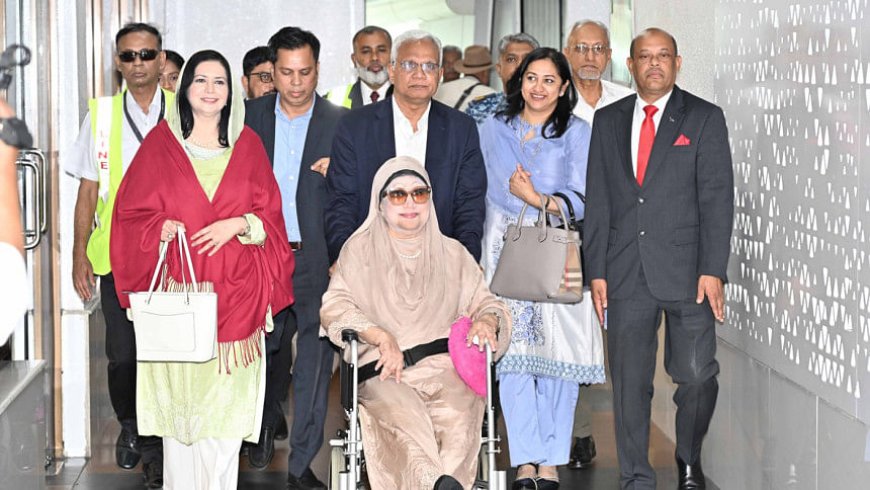Khaleda Zia’s Comeback: What It Signals for the BNP’s Future
Khaleda Zia’s Comeback: What It Signals for the BNP’s Future

After four months of advanced medical treatment in London, former Prime Minister and BNP Chairperson Khaleda Zia—one of Bangladesh’s most enduring political figures—has returned to Dhaka. Her comeback is more than personal; it marks a pivotal moment in the country’s political transformation following the 2024 mass uprising and the installation of a transitional government.
What stands out even more than her return is her recovery. Once written off as terminally ill and politically obsolete by opponents, her gradual revival offers hope to supporters and serves as a quiet rebuke to the cruelty and mockery that once surrounded her treatment. Years of resistance to her seeking care abroad, coupled with public derision, left a deep mark on the national conscience.
Her return follows the student-led uprising that ousted Sheikh Hasina and brought in an interim government under Nobel laureate Prof Muhammad Yunus. In this new political era—marked by uncertainty and the promise of democratic renewal—Khaleda Zia re-enters not as a combative leader, but as a unifying presence. Despite her ordeal, she expressed no bitterness. She refrained from personal attacks and instead called for patience, dialogue, and national unity.
This new posture signals a shift—from a relentless political contender to a figure of moral authority. While her health may limit a return to frontline politics, her influence over the BNP’s direction remains strong. Leadership succession within the party now looms large. Khaleda Zia and acting chairman Tarique Rahman are believed to be in deep discussions about the BNP’s future. The return of Tarique’s wife, Zubaida Rahman, from 18 years of exile adds intrigue. Though not previously politically active, her presence could energise the party’s base and widen its leadership options.
Yet, the road ahead is fraught with challenges. The interim government has yet to present a clear path for electoral reforms or a credible timeline for transition, raising public anxiety. At the same time, the BNP grapples with internal instability—years of state suppression, leadership in exile, and grassroots stagnation have left the organisation fragmented. Recent reports of extortion, infighting, and power struggles among local leaders have eroded its credibility. Unless discipline and reform are prioritised, the goodwill sparked by Khaleda Zia’s return may quickly fade.
Still, her enduring political journey—from reluctant leader after her husband President Ziaur Rahman’s assassination to three-time Prime Minister—stands as a testament to resilience. She faced coups, arrests, electoral boycotts, and personal tragedies, but never chose exile. Her strength has always been as much moral as political.
However, reverence alone won't sustain the BNP. To stay relevant, the party must modernise, connect with youth, and offer a forward-looking agenda rooted in justice, rights, and reconciliation. Khaleda Zia’s return offers that opportunity—not as a return to the past, but as a step toward a more inclusive and democratic future.
Respected across divides—as a symbol of sacrifice, a survivor of injustice, and a voice of restraint—her silence in this volatile moment speaks volumes. Sometimes, the most powerful political message is not what is said, but what is withheld. What Khaleda Zia does next may shape not only her legacy, but also the direction Bangladesh takes from here.
What's Your Reaction?




















































































